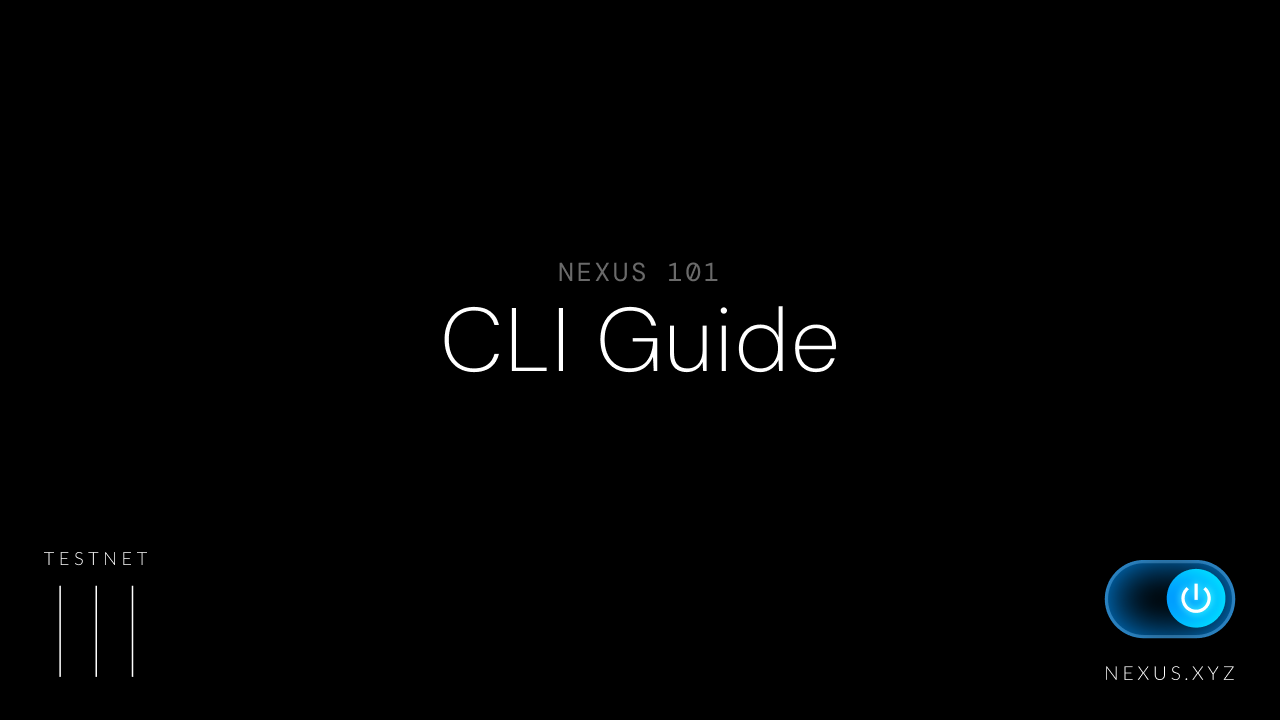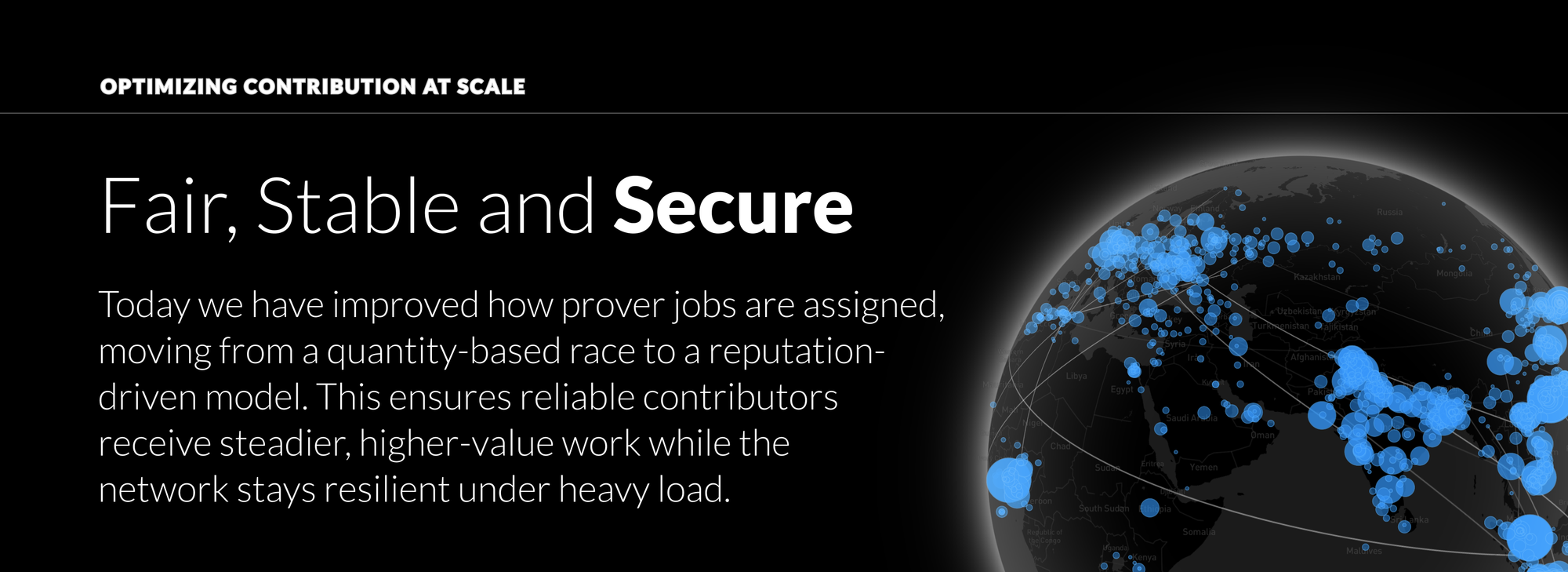Exponential Episode 25: Invisible Infrastructure
In this episode of Exponential, Jin Kwon, co-founder of saga.xyz, explains how blockchain infrastructure will disappear into the background.

We’ve made prover job assignments more fair, stable, and resistant to abuse, rewarding real contributors and improving the health of the network.
As the Nexus community continues to grow, we are always looking for ways to make it easier and more rewarding to contribute compute.
Today we have improved how prover jobs are assigned, moving from a quantity-based race to a reputation-driven model. This ensures reliable contributors receive steadier, higher-value work while the network stays resilient under heavy load. Below, we cover what is changing, why it matters, and how to make the most of it.
We have introduced a reputation-based job assignment system that prioritizes quality over quantity and smooths network performance during peak demand.
Reputation details: Every proving session starts at a baseline reputation. As you complete valid work, your reputation will increase, unlocking larger jobs.
For CLI v0.10.4 and later:
Older CLI versions cap at 10x jobs even with great reputation. Only v0.10.4+ can request the largest tasks. Reputation is session-based for now, so restarting resets the score. Task size will still vary, but higher reputation steadily increases access to high-value work.

The old approach rewarded node quantity over quality. Users could spin up hundreds of low-power nodes and still receive as many jobs as high-quality contributors. This led to congestion, instability, and slower assignments for everyone.
The new model delivers:

These steps will help you benefit from the new scheduler immediately.
Run one solid Nexus OS node or a CLI node with at least 4 GB of RAM, and keep it running steadily to build your session’s reputation. Avoid requesting more work than you can complete, and update to CLI v0.10.4+ to unlock the largest possible rewards.
Building a high-reputation track record is the best way to consistently earn high-value jobs.
Each CLI process has its own session reputation. Focus on maintaining a few high-reputation instances rather than spinning up many new ones at zero reputation. Give each CLI enough memory and CPU so it can complete every task without errors.
One stable, high-reputation node earning large tasks is better than many low-reputation nodes struggling to keep up. Remember that a lower-point task does not always mean your reputation has dropped, as task size and length vary naturally.
This new system lays the groundwork for a healthier, more scalable network. It means higher-value jobs for proven contributors, a transparent and resilient reputation model, and stronger protections for every user.
We are moving toward a future where real work is rewarded, spam is neutralized, and every contributor gets a fair shot.